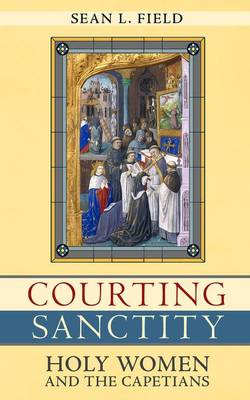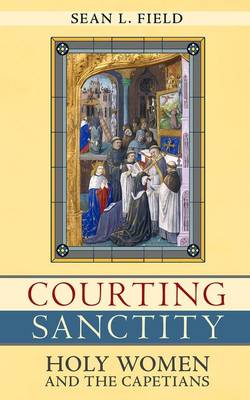
- Afhalen na 1 uur in een winkel met voorraad
- Gratis thuislevering in België
- Ruim aanbod met 7 miljoen producten
- Afhalen na 1 uur in een winkel met voorraad
- Gratis thuislevering in België
- Ruim aanbod met 7 miljoen producten
Omschrijving
The rise of the Capetian dynasty across the long thirteenth century, which rested in part on the family's perceived sanctity, is a story most often told through the actions of male figures, from Louis IX's metamorphosis into "Saint Louis" to Philip IV's attacks on Pope Boniface VIII. In Courting Sanctity, Sean L. Field argues that, in fact, holy women were central to the Capetian's self-presentation as being uniquely favored by God. Tracing the shifting relationship between holy women and the French royal court, he shows that the roles and influence of these women were questioned and reshaped under Philip III and increasingly assumed to pose physical, spiritual, and political threats by the time of Philip IV's death.
Field's narrative highlights six holy women. The saintly reputations of Isabelle of France and Douceline of Digne helped to crystalize the Capetians' claims of divine favor by 1260. In the 1270s, the French court faced a crisis that centered on the testimony of Elizabeth of Spalbeek, a visionary holy woman from the Low Countries. After 1300, the arrests and interrogations of Paupertas of Metz, Margueronne of Bellevillette, and Marguerite Porete served to bolster Philip IV's crusades against the dangers supposedly threatening the kingdom of France. Courting Sanctity thus reassesses key turning points in the ascent of the "most Christian" Capetian court through examinations of the lives and images of the holy women that the court sanctified or defamed.
Specificaties
Betrokkenen
- Auteur(s):
- Uitgeverij:
Inhoud
- Aantal bladzijden:
- 288
- Taal:
- Engels
Eigenschappen
- Productcode (EAN):
- 9781501736193
- Verschijningsdatum:
- 15/05/2019
- Uitvoering:
- Hardcover
- Formaat:
- Genaaid
- Afmetingen:
- 218 mm x 236 mm
- Gewicht:
- 544 g

Alleen bij Standaard Boekhandel
Beoordelingen
We publiceren alleen reviews die voldoen aan de voorwaarden voor reviews. Bekijk onze voorwaarden voor reviews.












